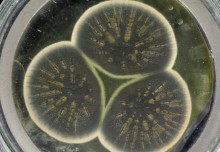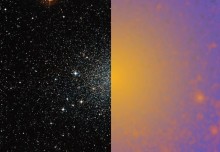

In memoriam
Imperial pays tribute to eminent ecologist Georgina Mace
Georgina Mace, former director of Imperial’s NERC Centre for Population Biology, passed away on 19 September 2020.
 5
5



Imperial pays tribute to eminent ecologist Georgina Mace
Georgina Mace, former director of Imperial’s NERC Centre for Population Biology, passed away on 19 September 2020.
 5
5


Deforestation squeezes top predators in forest streams
Streams in areas converted to oil palm have different top predators to those flowing through intact forests, affecting stream food webs.


Genome of Alexander Fleming’s original penicillin-producing mould sequenced
Researchers have sequenced the genome of Alexander Fleming’s penicillin mould for the first time and compared it to later versions.
 1
1


Audio
Podcast: Maths marvel, COVID in children and cooking with hyperfoods
In this edition: A $3m-prizewinning mathematician, a new project into how children transmit COVID-19, and recipes with anti-cancer properties.


Acoustics network gets £1.3m boost to help meet the UK’s Grand Challenges
New funding will connect researchers and industry, amplifying the contribution of acoustics – the science of sound – to modern society.


Unique ultraviolet aurora spied at comet visited by Rosetta
ESA’s Rosetta mission has revealed a unique kind of aurora sparked by the solar wind in the gas surrounding Comet 67P/Churyumov-Gerasimenko.


Imperial completes new space mission instrument despite lockdown challenges
Staff from the Department of Physics have delivered a miniature instrument for a new kind of European Space Agency space weather monitoring mission.
 1
1


Dark matter even more elusive than previously thought
One of the best candidates for finding dark matter – dwarf galaxies – appear to be sending weaker signals than previously thought.


Size determines how nanoparticles affect biological membranes
Imperial researchers have tested whether gold nanoparticles could be toxic to cells, finding how they affect lipid membranes depends on their size.


Video
Astronomers find hints of life on Venus
An international team of astronomers have discovered a rare molecule – phosphine – in the clouds of Venus that could indicate the presence of life.
 1
1